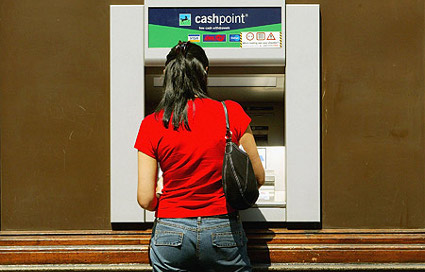DECIDING in advance what you want from a cashpoint can stop others wanting to kill you, it has been claimed.
The Institute for Studies found that potentially dangerous bank machine deliberation could be avoided by planning your transaction before reaching the front of the queue.
Professor Henry Brubaker said: “If you’re waiting to use a cash dispenser, ask yourself a few questions. The main one is ‘how much money do I want?’
“It’s good to have a specific figure in your head, for example £20. Or any multiple of ten, whatever.
“Bear in mind that cashpoints are not places for quiet contemplation, phone calls or socialising. Nor are they crude arcade machines for your stupid, idle amusement.”
Retail assistant Mary Fisher said: “But I like to be ‘in the moment’ when I’m operating a cash machine.
“It’s like free jazz, there are no rules and time is not a factor. I’ve just got three different cards – two of which have expired – and a headful of vague possibilities.”
Office worker Tom Logan said: “I enjoy going to cashpoints and pressing all the different buttons because of the lovely computer music it makes. It’s like my own private Kraftwerk concert.
“How could anyone possibly have a problem with that?”


